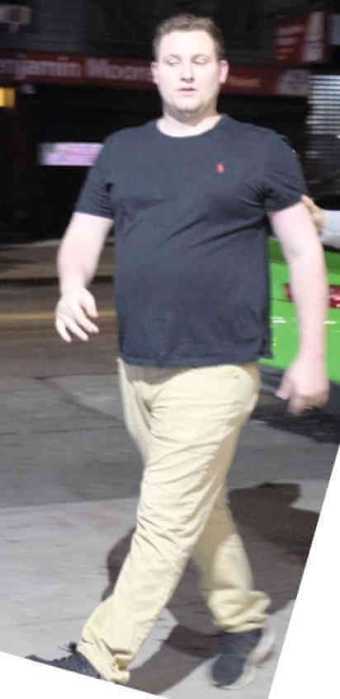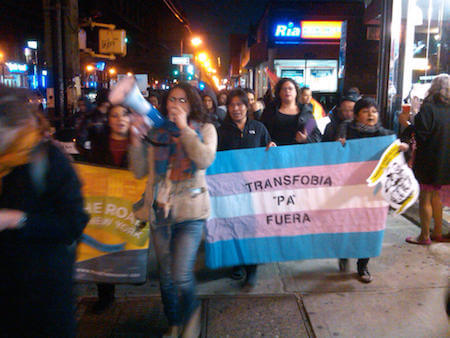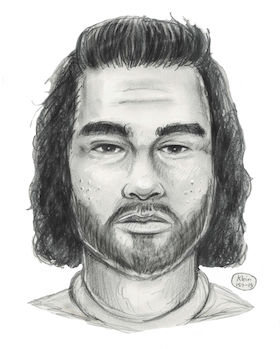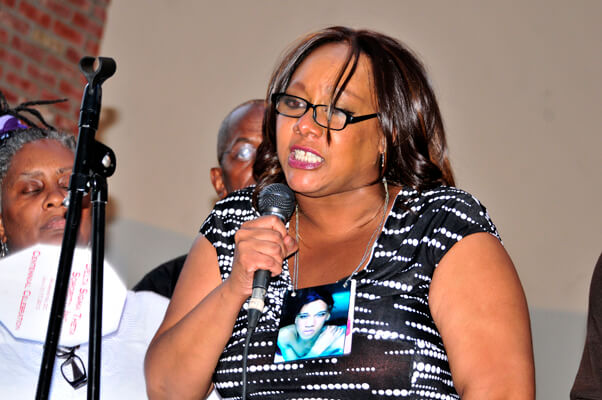The accused killer of Mark Carson testified that he shot the 32-year-old gay man because he believed that Carson was pulling a gun from his pocket during a fight in the West Village.
“I thought he was going to take something out and shoot me,” Elliot Morales said while being questioned by Adam Freedman, his legal advisor, in Manhattan Supreme Court on March 2. Morales is representing himself, but was questioned by Freedman for his testimony.
Charged with second-degree murder as a hate crime, weapons possession, and menacing in the killing, Morales has suggested that Carson’s death came at the end of an alcohol-fueled fight and that he was defending himself from Carson and Danny Robinson, Carson’s friend.
Elliot Morales’ claim he saw victim pulling out gun not corroborated by any other witness or evidence
This is the first time that any witness has claimed that Carson was armed.
Allegedly, Morales shot Carson just after midnight on May 18, 2013. Carson and Robinson were out partying and Morales was passing through the West Village with two friends, Joseph Matos and Oscar Robles. Both sides agree on the general outlines of the case, but disagree on many of the specifics that lie at its heart.
Morales and his friends were walking south on Sixth Avenue. Carson and Robinson were heading north. Morales forced the two gay men apart and allegedly used an anti-gay slur, a charge that Morales has vehemently denied. The men argued while Robles and Matos tried to calm all three and urged Carson and Robinson to move on.
Morales headed north on Sixth Avenue and turned east onto Eighth Street with Carson and Robinson behind him. Whether they were following Morales or continuing on their original path is disputed.
“What did you perceive their actions to be?” Freedman asked.
“They were going to jump me,” Morales said. “Both people beating me up.”
Morales, Carson, and Robinson were facing each other on Eighth Street, and Morales said in trial testimony that he displayed the gun he was carrying in a shoulder holster. With Matos once again trying to calm the situation, Morales said he fired the weapon.
“Did you intend to shoot the gun?” Freedman asked.
“Absolutely not,” Morales said. “I never aimed it at anybody at any time.”
While jurors can find testimony by defendants compelling, the problem with Morales’ testimony is that it requires jurors to discount the testimony of at least six other witnesses and the jury will, as well, have to ignore some evidence that came from Morales to believe him.
In Morales’ recounting, he was holding the gun at his side with the muzzle pointing down. As he perceived the threat, he raised the gun as he was turning away from Carson and Robinson and fired. The single shot struck Carson in the head, killing him.
Cross-examined by Shannon Lucey, the assistant district attorney who is prosecuting the case, Morales said he did not know if he had killed anyone or even hit anyone with the shot as he fled the scene. But when he was captured by police moments later holding the gun that was used to kill Carson, police recorded him saying, “I fucking shot him dead. Diagnosis dead doctor.”
Morales, who said he did not remember making those comments, made no reference to acting in self-defense in the police video.
Questioned by Lucey, Morales said he knew that there were only four bullets in the six-shot revolver and that the weapon fired on the first shot. Morales confirmed that the cylinder had been turned so that the gun was ready to fire on the first trigger pull.
Two witnesses, who did not know each other, testified that Morales made comments to them as he raced past them following the shooting. Morales denied speaking to those witnesses. And he disputed the account of the police officer who arrested him, saying he surrendered rather than being wrestled to the ground.
The menacing charges stem, in part, from his entering a West Village restaurant roughly 20 minutes before the Carson shooting. He is alleged to have used anti-gay slurs and displayed the gun there. Two employees testified to this. Questioned by Freedman, Morales said he never took the gun into the restaurant, never used anti-gay slurs, and only went into the business to ask employees to not call police after they saw him urinating in the street.
“I tried to talk to the individual, telling him please don’t call the police,” Morales said.
Matos, who testified for the defense, said he did not see Robinson or Carson holding any weapons. Robinson said the same thing when he testified. Morales repeatedly said he saw a gun. The only gun recovered by police belonged to Morales.
“When he reached into his pocket and took the gun out, I reacted,” Morales told Lucey.
Morales’ testimony has him consuming far more alcohol than Matos, who was with Morales for nearly the entire time the day of the shooting, testified to or than Robles, who was with Morales about two or three hours before the shooting, testified to. The evidence is that Robinson had two drinks before encountering Morales and Carson had three.
The defense ended its case on March 2. Following closing arguments on March 3, jurors will consider second-degree murder as a hate crime, second-degree murder, second-degree manslaughter, and the menacing and weapons charges.
Jurors will also weigh a justification defense, or self-defense, and whether being intoxicated meant that Morales did not have the legally required mental state to be guilty of the criminal charges.



































